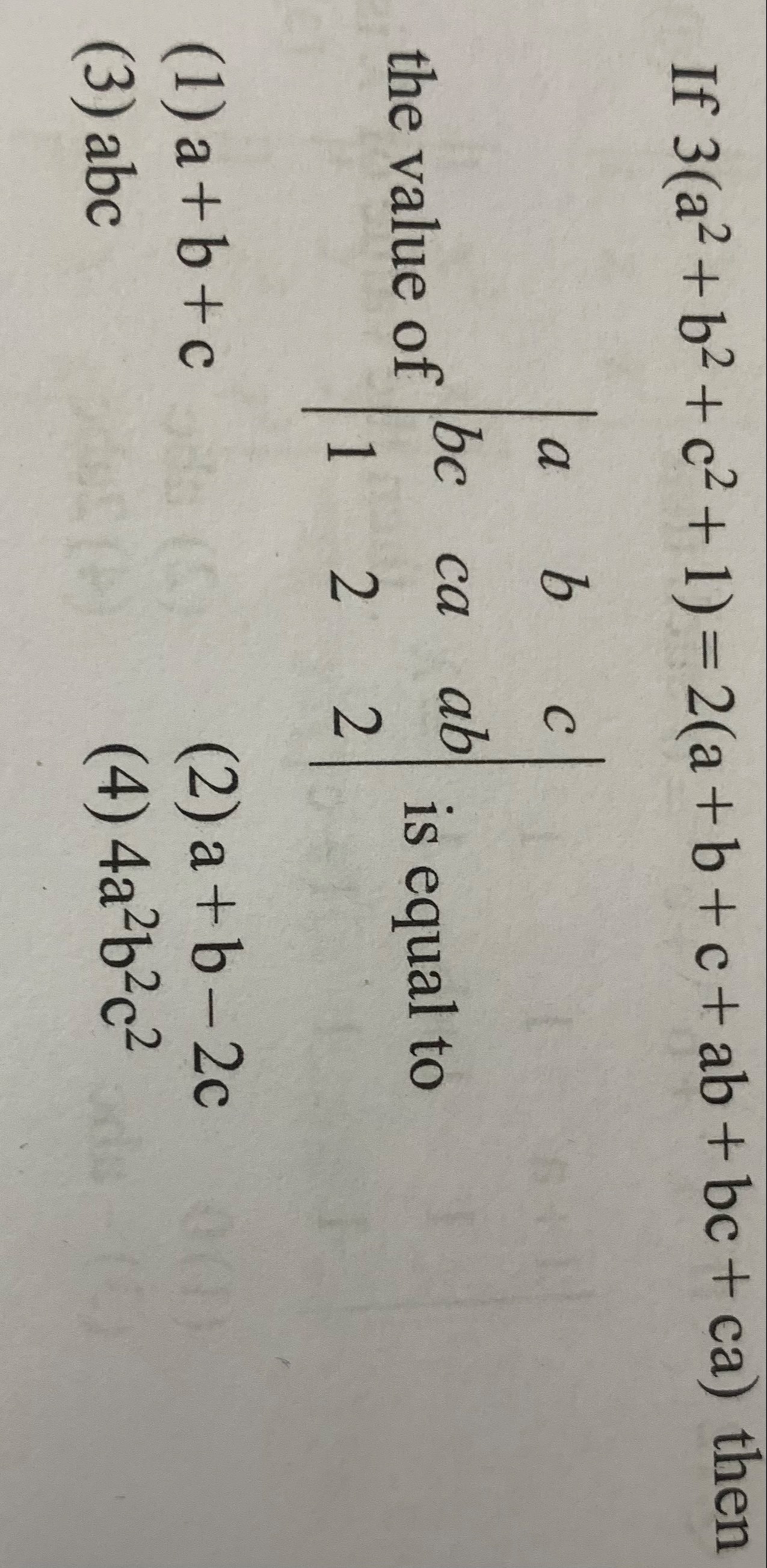Question
Question: If $3(a^2+b^2+c^2+1)=2(a+b+c+ab+bc+ca)$ then $\begin{vmatrix} a & b & c \\ bc & ca & ab \\ 1 & 2 & ...
If 3(a2+b2+c2+1)=2(a+b+c+ab+bc+ca) then
abc1bca2cab2 is equal to

A
a+b+c
B
a+b-2c
C
abc
D
4a2b2c2
Answer
a+b-2c
Explanation
Solution
We are given
3(a2+b2+c2+1)=2(a+b+c+ab+bc+ca)and must evaluate
D=abc1bca2cab2.A quick “test‐point” helps. Notice that the given equation is symmetric. It is natural to try the symmetric solution a=b=c. Let
a=b=c=t.Then
3(3t2+1)9t2+39t2−6t2−6t+33t2−6t+3t2−2t+1(t−1)2=2(3t+3t2)=6t+6t2=0=0=0=0,so t=1. Thus one solution is a=b=c=1.
Now substitute a=b=c=1 into the determinant:
11⋅1111⋅1211⋅12=111112112.Because the first two rows are identical, the determinant is zero.
Next, check the given options for a=b=c=1:
- a+b+c=1+1+1=3,
- a+b−2c=1+1−2⋅1=0,
- abc=1,
- 4a2b2c2=4.
Only option (2) yields 0. (A more detailed algebraic manipulation would show that under the given relation the determinant is forced to equal a+b−2c.)
